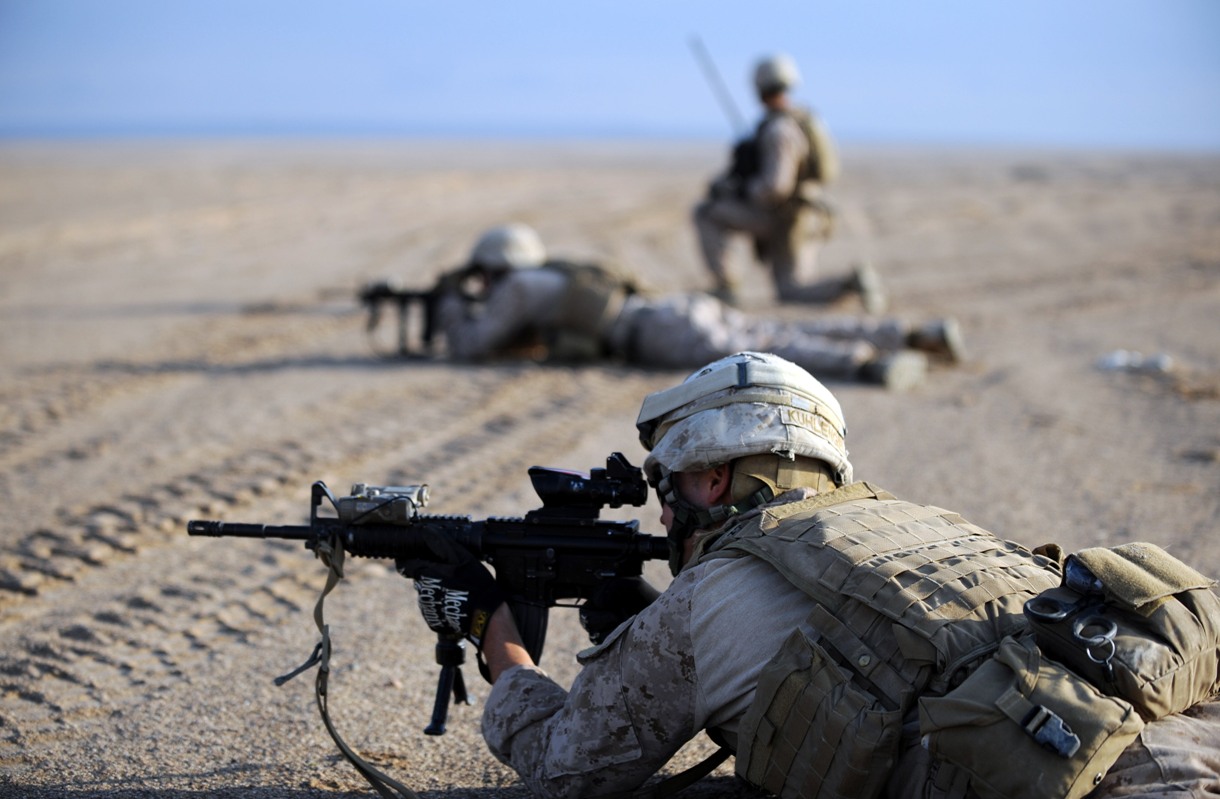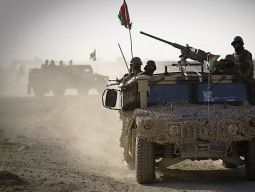
ISLAMABAD: Afghanistan witnessed two historic events this week. After several months of facing a political deadlock, the country finally experienced a transition to democracy. More importantly, it also ratified a controversial security pact with the United States to justify the stay of American troops after 2014.
Initially, Hamid Karzai had resisted attempts to sign the Bilateral Security Agreement (BSA) for nearly a year. However, his successor, Ashraf Ghani Ahmadzai, instructed his top security adviser Hanif Atmar to sign the document within hours of being sworn-in as president.
Pakistan’s top national security and foreign affairs adviser Sartaj Aziz was quick to welcome the move as a goodwill gesture. However, he did not comment on the implications of BSA on “foreign aggression and external threats” to Afghanistan.
In a series of interviews, Aziz said Pakistan has no reservations about the security pact signed with the US and NATO. He billed the BSA as a “positive development”.
External threats
The security pact has a separate clause to deal with external aggression. The phrase “external threats” has been mentioned at least 13 times in Article 6. According to the agreement, in the event of an external threat, both the US and Afghanistan will have to contemplate an appropriate response including military measures. In light of a section of Article 6, both parties should regularly consult each other on political, diplomatic, military and economic measures to form an appropriate response in the event or the threat of external aggression against Afghanistan.
Some in Pakistan, who have traditionally influenced Afghan policy, will interpret “external threats” in the context of the tense Pakistan-Afghan relationship.
Raw end of the deal
Afghanistan currently enjoys good relations with all its neighbours except Pakistan. Karzai had constantly called for action against Pakistan as he believed “the roots of terrorism” were outside the Afghan border. Senior Afghan analysts believe the BSA will increase pressure on Pakistan and benefit India and Iran more than Pakistan.
“The US is a close, covert ally of Iran and India - not of Pakistan,” former Afghan Minister Dr Farouq Azam told The Express Tribune.
“Traditionally, Iran and India support the Northern Alliance in Afghanistan. They are strategic partners. Pakistan may need extra skill to keep an eye on all three countries,” he added. “Since Pakistan appears to have no friends in Afghan politics, the BSA may be used to exert pressure on Pakistan to ‘behave properly’,” said Azam.
According to the former minister, the BSA will continue to keep Pakistan at loggerheads with Afghanistan while security forces will continue with the military offensive in Waziristan and other tribal regions.
However, Pakistan’s Senate Defence Committee Chairman Senator Mushahid Hussain has rejected the notion that BSA’s external threat is directed toward Pakistan.
“We should not assume ‘external threats’ only refers to Pakistan. After all, the US still considers Iran an ‘enemy’,” Hussain told The Express Tribune.
“What is particularly alarming is Obama and Modi’s joint statement referring to ‘terrorist safe havens’ and only listing groups in India. They have conveniently omitted Tehreek-e-Taliban at a time when the Pakistan Army has launched a military offensive against them in North Waziristan.”
According to Hussain, such double standards are “simply appalling and unacceptable”. The BSA should now be followed by dialogue with the Taliban and others like Hekmatyar, said Hussain.
“Additionally, Afghanistan’s neighbours, particularly Pakistan, Iran and China, should be proactive partners in the peace process,” he added. These elements can provide a firm foundation for stability in Afghanistan.
Cause for concern
Although Pakistan has steered clear of criticising the impact of the bill on the country, Afghan leaders have realised the concerns of its neighbour. Afghanistan’s Chief Executive Dr Abdullah Abdullah — who assumed a position similar to that of a prime minister after signing a power-sharing agreement with Ghani — said the security pact will not create problems for its neighbours.
“The pact has been signed after careful considerations,” Abdullah said at the ceremony at Presidential Palace on Tuesday minutes after the agreement was signed. He added, “It is not a threat to our neighbours. It will help strengthen peace and stability in the region.”
The Taliban and Hizb-e-Islami, led by Gulbuddin Hekmatyar, have rejected the BSA and questioned the desire of the US to stay beyond 2014. The Taliban accused the US of preparing for another fight under the name of the security pact.
Hekmatyar, in his Eid message, criticised President Obama for “violating his own pledges to quit Afghanistan this year.” He said, “It is natural for fighting to continue in the presence of foreign troops as Afghans do not accept the presence of foreign troops on their soil.”
Published in The Express Tribune, October 4th, 2014.
COMMENTS (5)
Comments are moderated and generally will be posted if they are on-topic and not abusive.
For more information, please see our Comments FAQ






















































It is Time for Pakistani Establishment to put her own ducks in a row.
Correct - but remember that this provision was put into the agreement by Afghanistan not the USA and the only country that Afghanistan considers and "external threat" is Pakistan.
I thing I am goof-I am only understanding this BSA agreement will keep our region under tensions,and devoid all of us ie Iran,Tajikistan,Uzbekistan,Russia,China,Pakistan and Afghanistan from mutual economic growth by free criss cross trade.Secondly American sponsored terrorism will never end.Those who are appreciating this BSA not looking beyond their nose.
India-afghanistan bhai bhai...
Though I did not like Karzai refusing to sign the BSA and shifting the responsibility to the new government in Afghanistan, now, I think that Karzai did the correct thing. Since both leaders of new government have signed the agreement with USA, they will also take responsibility that the objectives of the agreement are fulfilled.